Looking for my Shanghai father
- Published
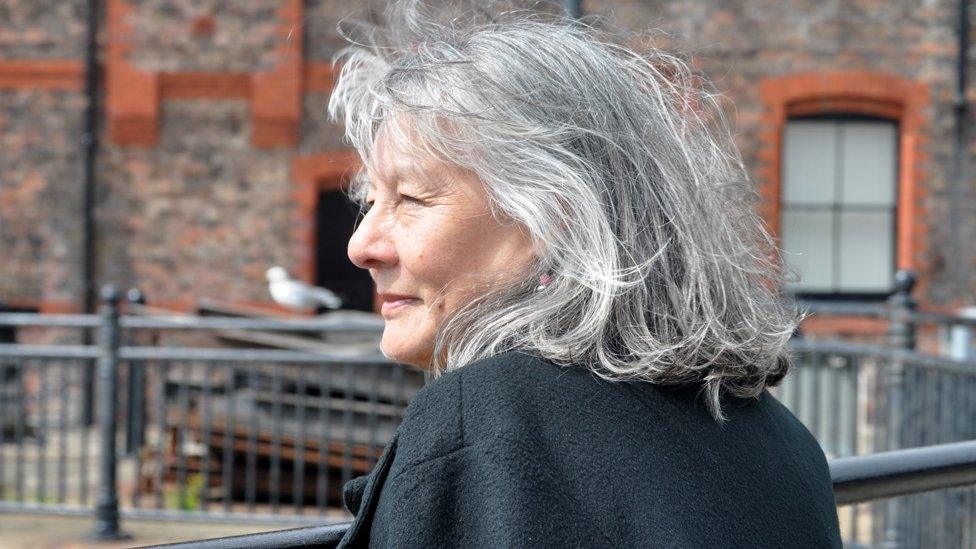
After World War Two ended, the British government forcibly repatriated hundreds of Chinese sailors who had been recruited for the Merchant Navy. Their sudden departure had a devastating effect on families left behind, like that of Yvonne Foley.
"You're just like your father," Yvonne's mother exclaimed, "always arguing, trying to change the world."
The nine-year-old was confused. That sounded nothing like her father.
"I mean your Shanghai father," her mother insisted.
Who? Yvonne was momentarily baffled, but then put it to the back of her mind.
Two years later, in 1957, the subject came up again. This time her mother, Grace, wanted to tell her more.
The man Yvonne had been calling "Dad" was not her biological father. Instead her birth father was Nan Young, a Chinese ship engineer her mother had met in Liverpool in 1943.
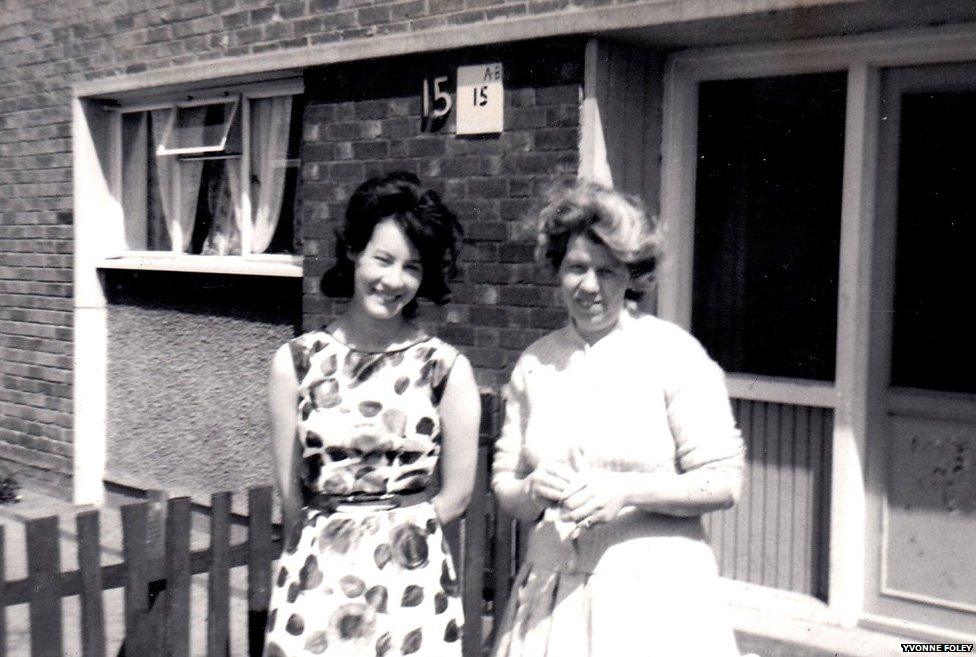
Yvonne Foley with her mother Grace
Grace and Nan had met at Liverpool University. Grace worked in the canteen and Nan Young was studying some kind of engineering, Yvonne thinks. The relationship ended when Nan left in 1946.
Nan was one of the thousands of Chinese sailors who had been recruited from Shanghai, Singapore and Hong Kong by shipping companies for the Merchant Navy. The ships were bringing in oil, food and raw materials to help the British war effort.
Typically, the Chinese sailors worked as engine room crew and deck hands and were paid around a third of what British seamen made. Shanghai, in particular, had a reputation for providing skilled mechanics. Yvonne's father was one of them.
Many of the Chinese sailors started relationships with British women. They married and started families. But mixed relationships were generally frowned upon - not just by the women's families but by the wider community.
"It was simply fear that such a relationship would not work," explains Yvonne.
But the opposition of her family didn't deter 18-year-old Grace and the young Chinese seaman.
"One of my mum's sisters found a photograph of my Shanghai father that was hidden under the mattress," Yvonne explains, "She took it to my grandfather, and he forbade my mother ever to see him again."
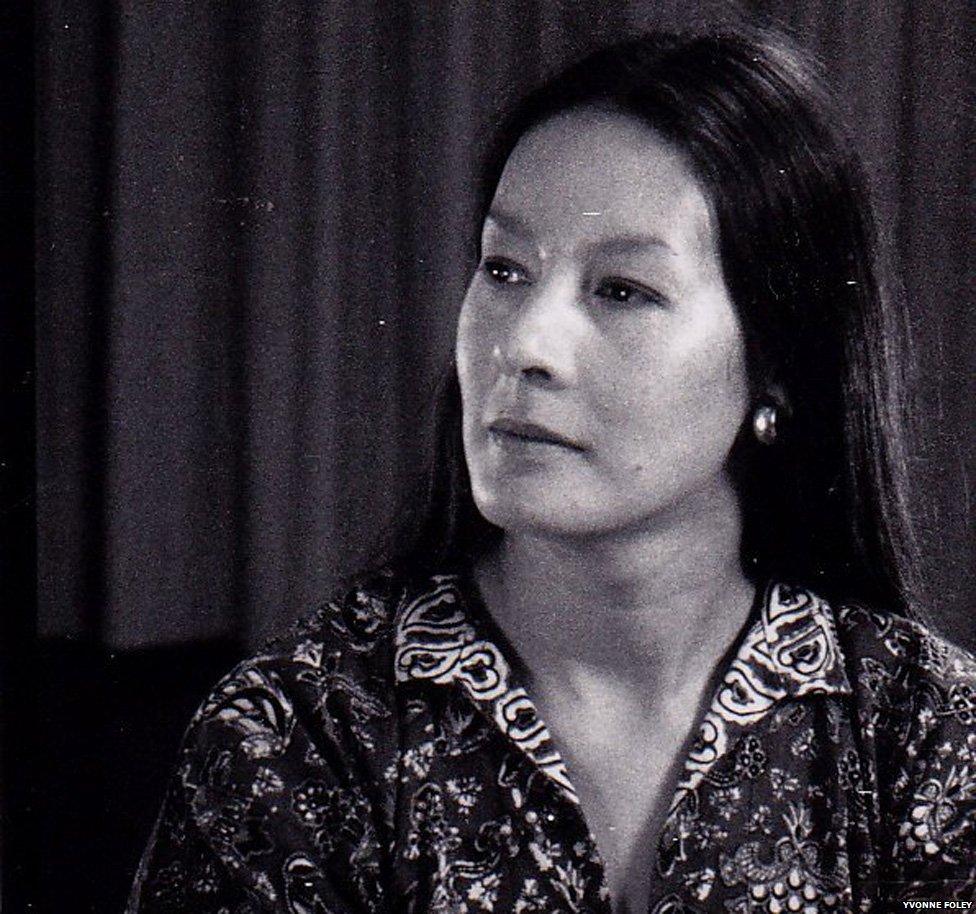
Yvonne in the 1970s
But that still wouldn't stop Grace. Despite the social stigma for an unmarried Catholic girl, she moved out.
Grace was still too young to wed without her parents' permission. But Yvonne says her mother had considered herself to be Nan's wife nonetheless.
Many women were hesitant to marry foreigners as the law of the time could lead to loss of British citizenship, and following that the right to vote, and access to state benefits.
Grace and Nan wanted to get away from disapproving parents and moved from Liverpool to a house in Hull. The house was at number 88, which is a lucky number for Chinese people. Yvonne still doesn't know why they chose Hull, but its port may have meant seafaring opportunities for her father, she thinks.
Grace fell pregnant in May 1945. They were going to start their new family together.
But just a few months before Yvonne was born, Nan Young had gone. In the space of several months, the men who had built new lives in Liverpool and elsewhere in the UK were sent back to the Far East.
Liverpool's importance as a maritime city brought smaller numbers of Chinese sailors as early as the 19th Century. With the influx of sailors during the war, the city's Chinatown was booming.
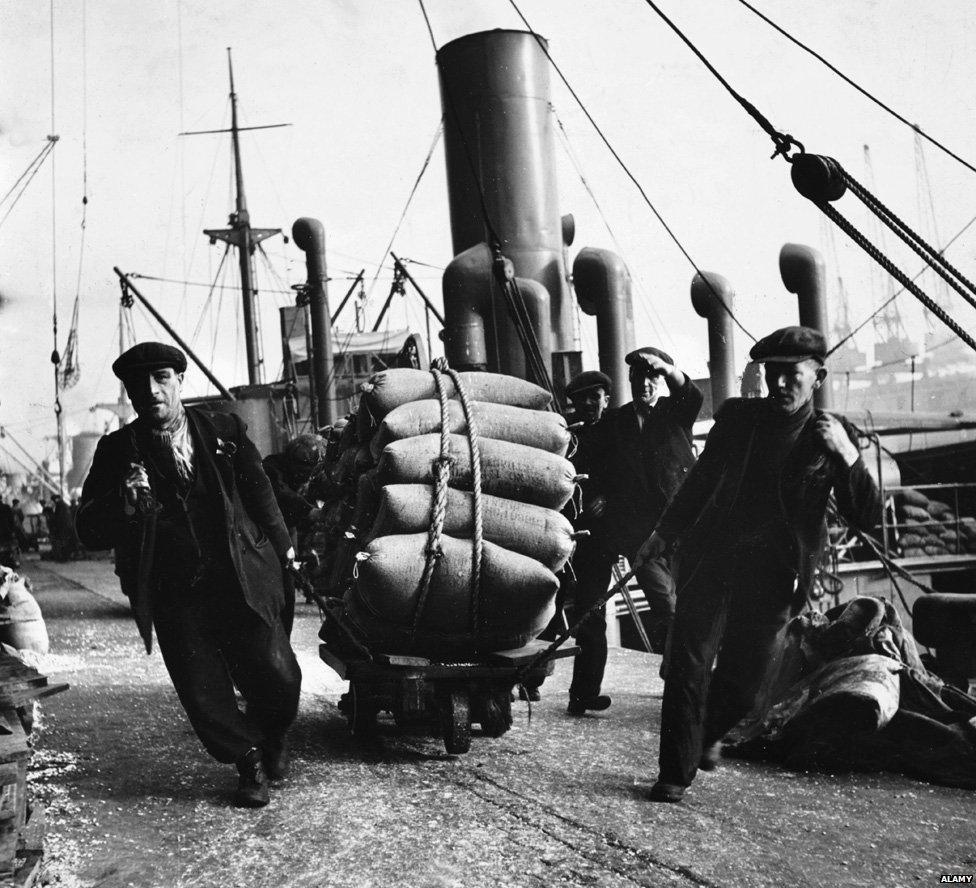
Food is unloaded by dockers in Liverpool, 1942
"Understandably, the Chinese sailors liked to spend their time and money in Liverpool, enjoying its Chinatown, with its pubs and clubs," says Prof John Belchem, author of Before the Windrush: Race Relations in 20th Century Liverpool.
They got along better with the local community than other migrant groups, he says. The city was also home to Afro-Caribbean and South Asian communities.
Even for those with prejudices, having relations with Chinese people was considered the lesser of two evils in comparison with mixing with Afro-Caribbeans, says Belchem.
But shortly after the war ended, there was a sudden drive to get rid of thousands of Chinese sailors, including Nan Young. Many were leaving wives and children behind.
It wasn't a straightforward process for the government. "They couldn't just force them out as they had done with a few bad apples previously, so they had to do complicated things so that it looked legal," says Belchem.
The men had never become citizens of the UK, and were on contracts that stationed them in Liverpool. The only way for the government to get rid of them was to change the conditions of their stay.

Chinese sailors in Liverpool, WWII
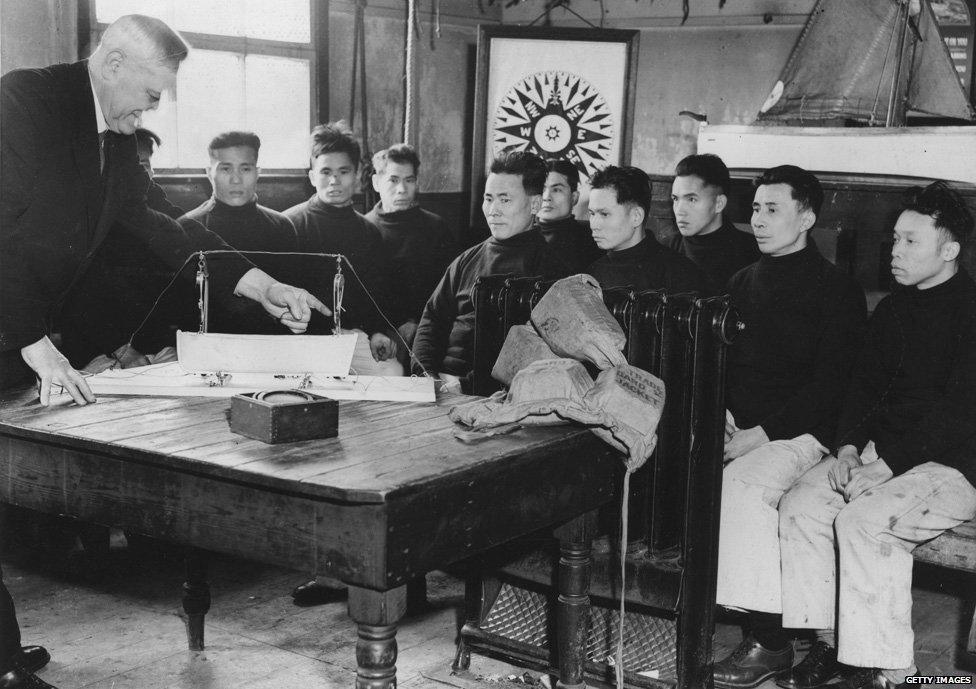
Liverpool was home to around 20,000 Chinese merchant seamen at the beginning of World War Two
Many of these became casualties during this dangerous period, reducing the numbers significantly by the end of the war
The two main shipping companies who employed them were Alfred Holt and Company and Anglo-Saxon Petroleum

For most, their home port would be changed to Shanghai, working for even lower wages.
An Immigration Officer's report from July 1946 says that police officers were sent all over the country to find these seamen and put them on the boat.
Those who didn't leave voluntarily would be handed deportation orders and brought aboard forcibly. By July 1946, nearly 5,000 Chinese seamen had been sent back to the Far East.
But why did the government decide to get rid of them?
The war was over, and Britain's economy and infrastructure were in ruins. While many in Britain clung to idea of a far-flung Empire, the questions posed by the end of the war were closer to home, says Belchem.
"They were worried about the rebuilding of the [UK] itself and that was the priority for the people at the time, which meant getting rid of the people who helped during the war - it was a terrible piece of ingratitude."
The Chinese sailors, and in particular those from Shanghai, had taken part in a strike in 1942, demanding higher pay and bonuses for working in danger zones.
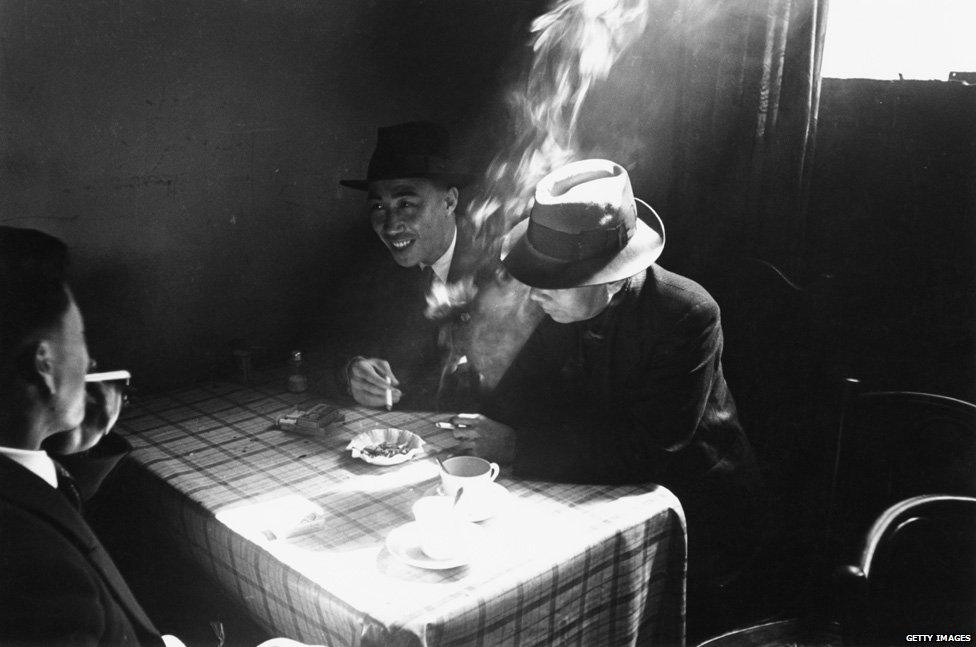
Chinese seamen chatting and smoking at a Chinese hostel in Liverpool, May 1942
These men were in demand and so they won, but were considered to be "troublemakers" from then on, according to shipping firm Alfred Holt's documents at the Ocean Archive. Yvonne has researched the documents. Once the war ended, she says, Holt was facing competition from the likes of the Swedes and Americans and couldn't afford to continue employing the Chinese on these wages.
The Chinese sailors' wages were then cut back to their pre-strike levels.
"The rates were so low they would no longer be able to support themselves in the UK, or any partners they may have acquired," Belchem says.
A Home Office document from October 1945 reads: "That they were an undesirable element in Liverpool was shown by the fact that in the last three years there had been 1,000 convictions for opium smoking.
"The Liverpool authorities were anxious to secure the use of the housing accommodation which the Chinese occupied."
But Belchem says that was an unfair analysis. "There were one or two with criminal records, but the government used this minority to stigmatise the whole Chinese population."
"If you look at the way most people see it, they would be absolutely model migrants. They were respectful, well-behaved, believed in education, weren't violent, looked after their wives, looked after their children."
Nan Young never got to see his daughter.
Yvonne's mother told her daughter how she'd been ill at the time he left, and couldn't go with him.
A black and white photo of a baby sleeping peacefully on a white blanket reads "to Daddy with love" on the back. "It was obviously meant for my Shanghai father," Yvonne says, "but the sad part is, he never got it."
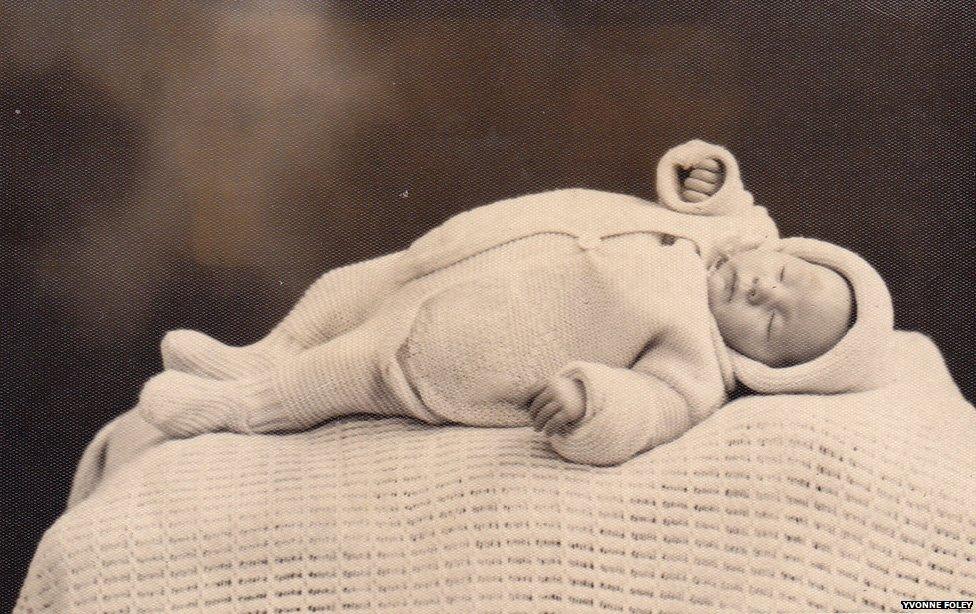
Yvonne as a baby
Yvonne was born in February 1946, a few months after Nan had gone.
"Back then we didn't ask questions. And for my mum, she always thought she'd been abandoned, so there was that hurt that made it difficult."
A group of sailors' wives who had been "left destitute" protested at their husbands' removals. "We are left to live on public aid, charity and the help of our families," one of them said in a News Chronicle article from August 1946.
The months went by and Grace moved back to Liverpool.
Yvonne recalls: "Mum's father had told her to get rid of me and start her life again. She refused and kept me."
Grace had met and married Edward Lindsay in 1948 and had given Yvonne a sister, Mary. Yvonne's love and respect for Edward had long kept her from digging deeper.
"I was curious about my Shanghai father. But I didn't press things. I didn't want to ask too many questions. How could I without upsetting my dad? The man who I loved as my father? I never did pursue the matter while he was alive. I had far too much respect for him."
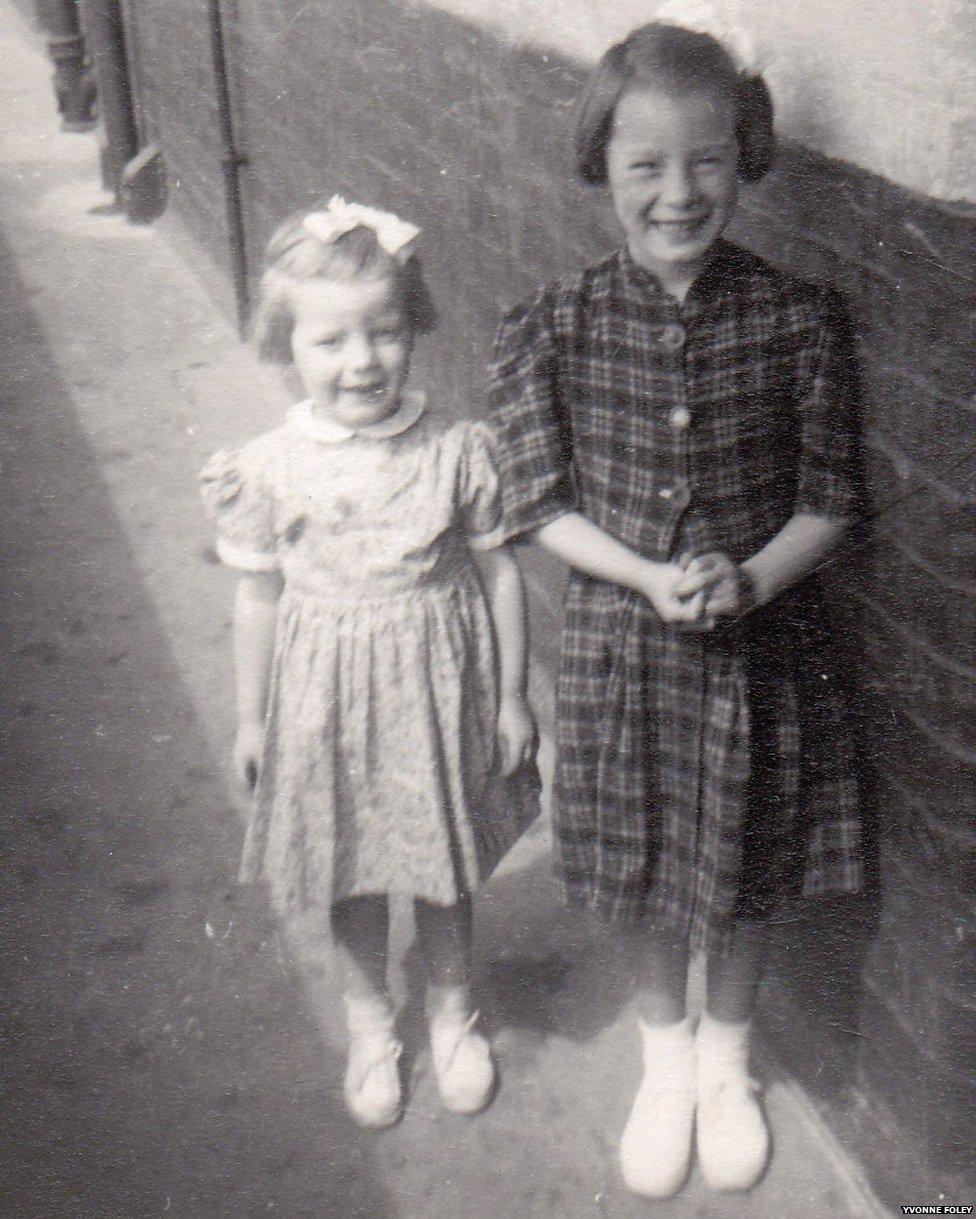
Mary and Yvonne in 1953
Yvonne knew little of her Shanghai father's background, other than that he had lived on the border of the French Concession - the area of Shanghai governed by France.
And that he was strong and argumentative like her, as her mother had said all those years ago.
Yvonne's husband's work happened to take them to Hong Kong in 1982. He taught business management at the Polytechnic University.
Later that year, Yvonne decided to pop over to Shanghai to see the place her father must have grown up in. She had learnt a lot about Chinese culture and history.
But at this point, Yvonne still didn't know much about her father or why he might have been in Liverpool. "Why was he not around when I was growing up? I had reconciled myself to never knowing the answer to these questions," she says.
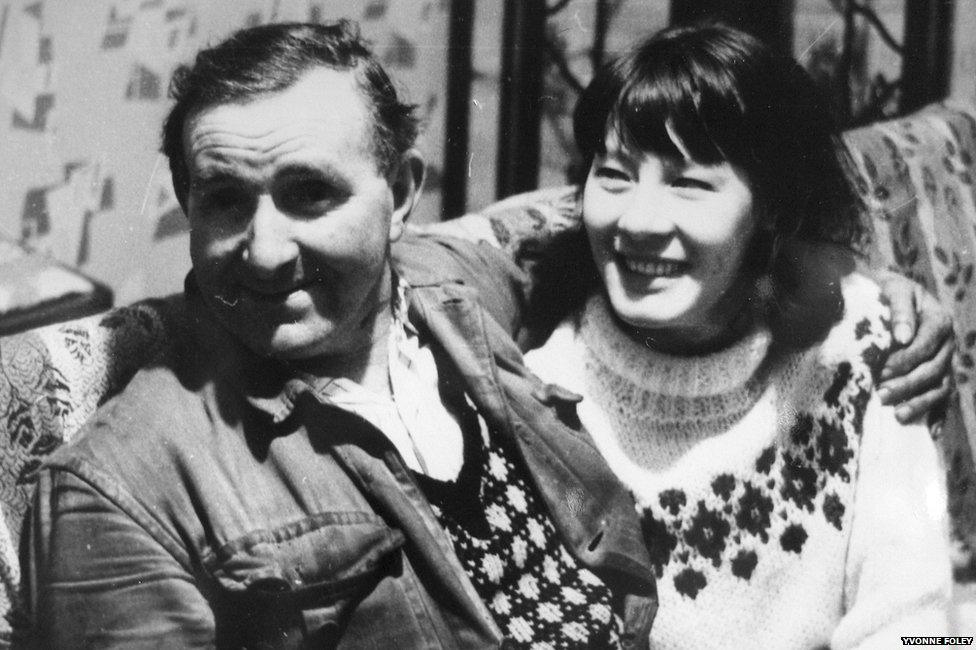
Yvonne and her dad, Edward Lindsay
The turning point came in 2005. While listening to a BBC Radio 4 documentary about Shanghai Sailors, Yvonne's curiosity was revived.
Sitting alongside her husband, Charles, in their Stratford-upon-Avon home, they listened to the story of Keith Cocklin, whose father had been forced to leave Liverpool after World War Two.
"Charles, Charles, I think this is me," she said. "That programme seemed to press a switch. Now I was determined to find out as much as I could."
There had been a time when Yvonne was far less curious about her background, but now she wanted to know exactly what had happened to her father.
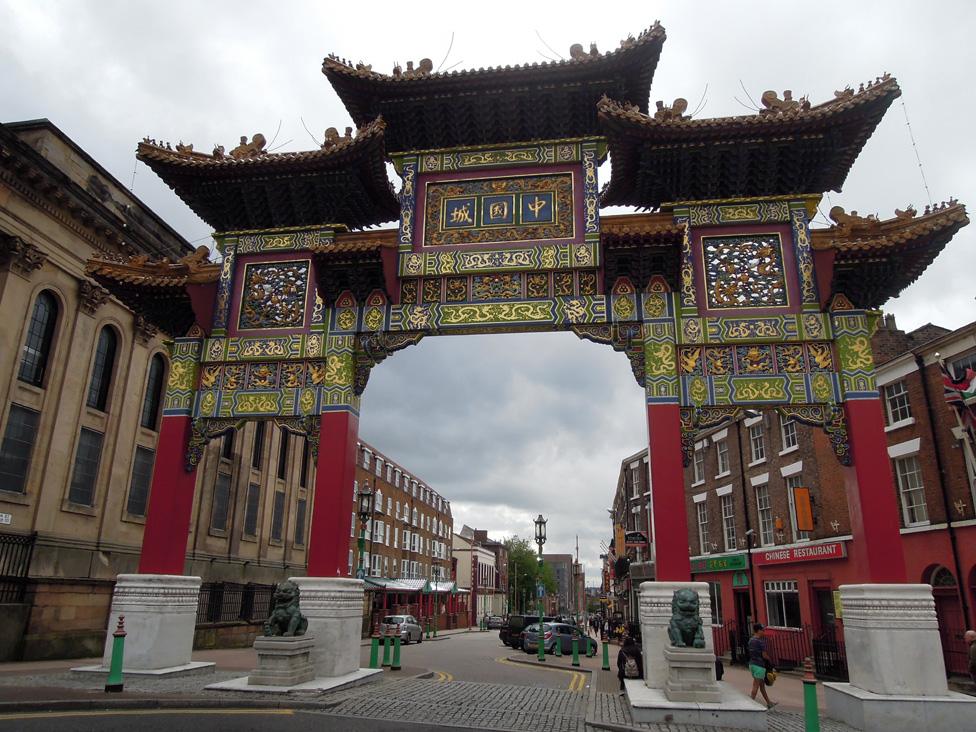
The ornamental gate that now stands at the entrance to Liverpool's Chinatown
She called the BBC, and managed to get in touch with Keith Cocklin. After some time, she managed to gather information about others whose fathers had disappeared.
Yvonne listened to their stories and those of others who lived through the 1940s.
She spent more than 10 years collecting snippets of information, with the aim of building a bigger picture of what happened to her father.
Charles and Yvonne visited archives in Melbourne, Sydney and Canberra, as well as Shanghai, her father's city itself.
When researching in China, she was left with the sense that the men had suffered a great deal once they'd returned. They were stopped from returning to the UK on ships, couldn't find work, and many lived in poverty.
Over the last 10 years, they have managed to build a clearer picture of what happened, piece by piece.
But their search isn't over. This month Yvonne and Charles are delving into records at the Imperial War Museum.
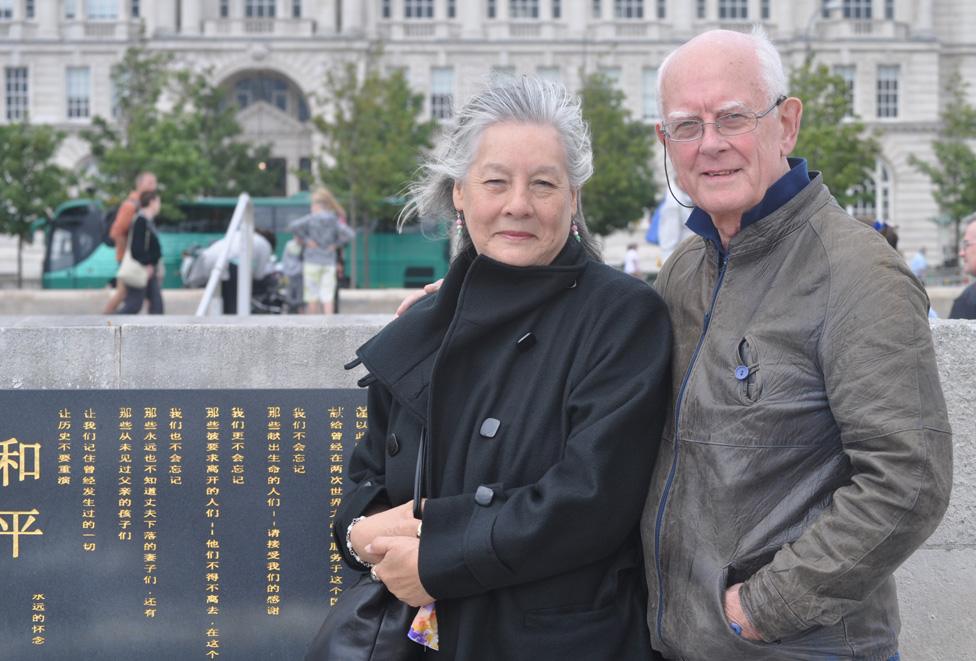
Yvonne with her husband Charles
To better remember her father and the other Chinese sailors, Yvonne had a memorial plaque put up on the docks in Liverpool in 2006, facing out to sea.
In both English and Chinese it reads: "To the Chinese merchant seamen who served this country well…
"For their wives and partners who were left in ignorance of what happened to their men. For the children who never knew their fathers."
Yvonne often remembers how her mum would say to her how similar in character she was to her Shanghai father, all those decades ago.
"I did not set out to find my father but to find out what happened. Along the way, I found my father within myself," she says.
Subscribe to the BBC News Magazine's email newsletter, external to get articles sent to your inbox.